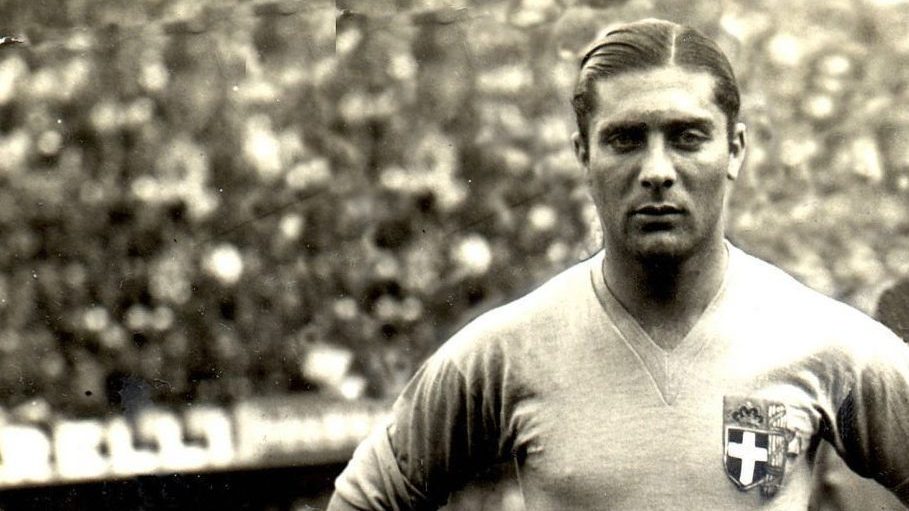They call it the San Siro, the stadium with coiled spring corner walkways that’s home to Internazionale and AC Milan, but that’s not actually its name. The 80,000-capacity arena might be situated in the San Siro district of Milan, but since 1980 it’s been called the Stadio Giuseppe Meazza in honour of arguably the greatest footballer the city has ever produced.
He grew up in the image of his home city: brash, flamboyant, stylish with a kind of dignified raffishness, a twinkle in the eye. It could be argued that he was the first football celebrity in the modern sense of the word, certainly in Italy, definitely in Milan.
None of his blind drinking or womanising mattered because none of it affected his genius on the field. In a sport played in heavy boots with a heavy ball on heavy pitches, Meazza moved like the dancer he was, bewitching opponents with speed and skill. Many of his goals came at the end of long, mazy runs, leaving defenders in his wake and rounding goalkeepers to tap the ball into an empty net. It was a brand of football ahead of its time. It was football as it was meant to be played.
But how do you know about the Italian great?
Who was Giuseppe Meazza?
Born in Milan, Italy, Giuseppe “Peppino” Meazza, was an Italian footballer. He helped Italy win 2 consecutive world cups: in 1934 and in 1938. He also won the Golden Ball Award in 1934. He is easily recognized as one of the best players to ever live and among the best of his generation while some might regard him as the greatest player Italy produced. Due to his inventive style and original abilities, he was given the nickname “il genio” (the genius).
Meazza, with 33 goals, is also the second-highest scorer in the Italian national team. After scoring 216 goals he is the fourth all-time highest goal scorer in Serie A and with 338 goals, he is the third-highest Italian scorer in all competitions.
Perhaps most importantly to those naming the stadium, Meazza was in many ways the personification of Milan itself. He was born in a working-class district of the city where, when his father went off to the First World War when Meazza was five years old and never returned, his mother was left a widowed single parent working full time at her fruit and vegetable stall.
It was however, his 13 years with FC Internazionale between 1927 and 1940 that saw his greatest success, winning three Scudetti, a Coppa Italia title, and during the same period, he even won two World Cups with the Italian…
Click Here to Read the Full Original Article at FootTheBall…

